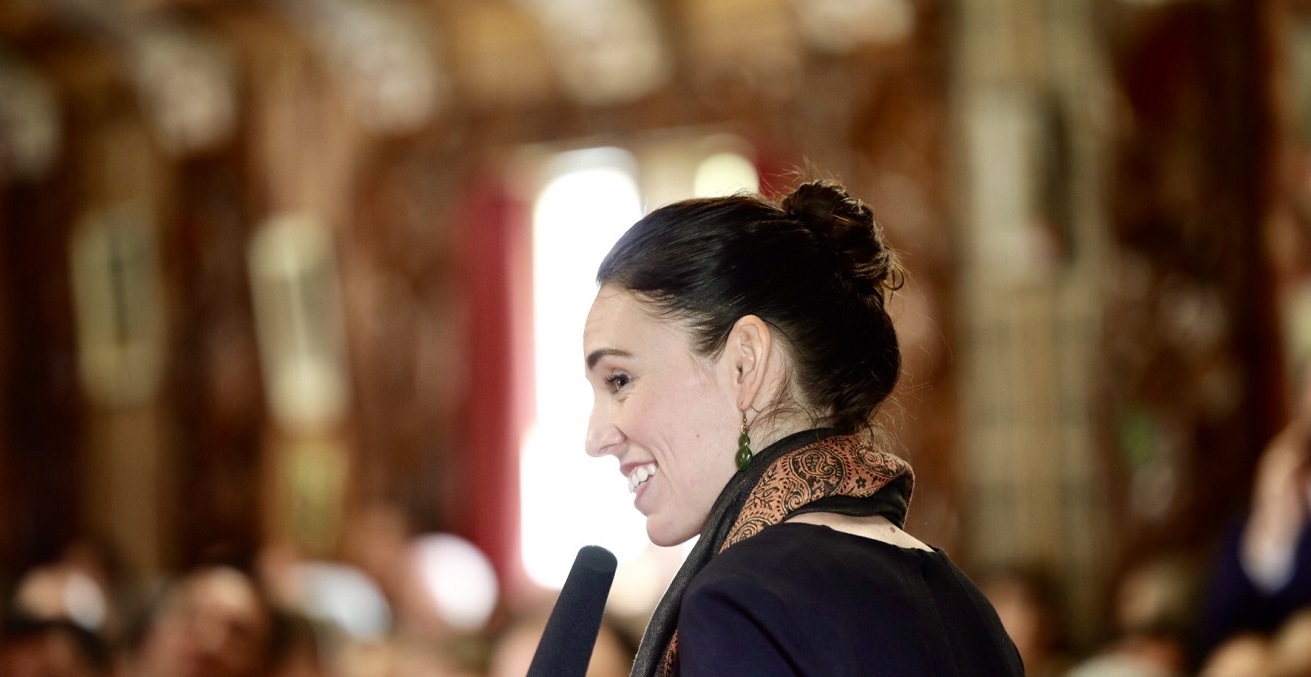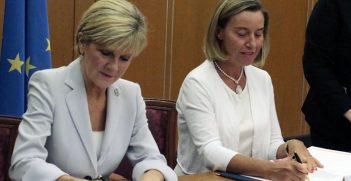When is a New Zealander actually an Australian?

Since tightening Section 501 of the Migration Act in 2014, Australia has cancelled the visas of over 2000 Australian-resident New Zealanders. Doing so mandates their deportation, but many such deportees have little connection to the country that issued their passport.
When is a New Zealander actually a “product of Australia” and thus Australia’s responsibility, rather than New Zealand’s? The answer, for New Zealand Prime Minister Jacinda Ardern, is if they have grown up in Australia or spent most of their life there. According to Ardern, in some such cases, Australia is deporting its own people and problems. While acknowledging that Australia is within its rights to deport non-citizen criminals – New Zealand also does it – she has argued that such deportations are unfair in cases where deportees have almost no connection to New Zealand, despite holding a New Zealand passport. New Zealand’s request is simple, she said in 2020: only send back “genuine Kiwis.”
Many New Zealanders appear to agree with Ardern. The policy has been widely criticised for separating families, for re-punishing people who have already completed their jail time for offences committed in Australia, for subjecting New Zealanders, including minors, to lengthy periods in immigration detention centres while they await appeal or deportation, for detaining and deporting people for minor crimes or with no criminal convictions at all, for being racist, and for importing new gang, drug, and other crime problems into New Zealand. Among this litany of concerns, however, the deportation of people who have lived in Australia since they were children is seen as particularly egregious.
Focusing on the social costs to the individuals and families concerned, New Zealand Minister of Justice Andrew Little has said that deporting someone who has grown up in Australia “to a country that is for all intents and purposes a foreign country to them, that is an extraordinary punishment.”
Ardern has argued that responsibility for the criminality of New Zealanders raised in Australia should be laid at Australia’s feet, saying that among those deported in the period up to 2020 were “individuals who are too young to become criminals on our watch, they were too young to become patched gang members, too young to be organised criminals.”
A similar point was made by the New Zealand government in their submission to the Australian Senate Legal and Constitutional Affairs Legislation Committee into the Migration Amendment Bill in 2018. They argued that “by cancelling their visas, Australia is not taking responsibility for these people’s failure to succeed in Australian society, despite them, in many cases, being a product of Australian society.”
The Australian government remains unmoved. In 2019 Foreign Minister Marise Payne said Australia had no intention of revising the law, a position Scott Morrison has since supported. Indeed, a bill currently before the Australian Parliament would make the character test even more stringent. Ardern has repeatedly said the issue is “corrosive” to bilateral relations between the two countries, but New Zealand has also been forced to admit that it has little leverage over Australia’s deportation policies.
Given the number and significance of other issues on which Australia and New Zealand have common interests, the deportation issue may be seen by some in both Wellington and Canberra as a comparatively minor irritant to the relationship. In the absence of any realistic expectation of a bilateral resolution, what is left is for politicians to play publicly to their respective domestic constituencies: Ardern’s criticisms of the deportations speak to New Zealanders outraged at Australia’s treatment of their fellow ANZACS, while Australian Home Affairs Minister Peter Dutton appeals to the immigrant-hostile elements of the Australian electorate by referring to the deportations as Australia “taking out the trash.” The issue, however, seems set to become more not less challenging to the bilateral relationship.
New Zealand’s new Foreign Minister Nanaia Mahuta’s inaugural speech to the diplomatic corps in February this year emphasised the primacy of the trans-Tasman relationship for New Zealand, saying “[it] is critical for New Zealand’s prosperity and security. Australia is our only formal ally and an indispensable partner across the breadth of our international interests.” Mahuta also stated her intention to take a “values-based approach to foreign policy” and located those values within Māori culture. These two perspectives are not necessarily incompatible, and Mahuta played it cool in responding to Dutton’s provocation, but when more than half of those deported from Australia are of Māori or Pacific descent, Mahuta’s commitment to promoting indigenous and Pacific issues in foreign policy becomes a more difficult balancing act.
Senior Cabinet member Peeni Henare is in a similarly awkward position. Henare is minister of both defence and Whānau Ora, the latter being a government agency established to support Māori families. He is also an associate minister responsible for Māori Health and for Māori Housing. As minister of defence, Henare will work closely with Australia – New Zealand’s key defence ally and partner – but the other roles will expose him to the mental health effects of Australia’s deportations on Māori. Peter Dutton’s recent appointment as minister of defence has the potential to produce dissonance between Penare’s international and domestic roles.
Eight out of the 20 ministers sitting around Ardern’s Cabinet table are of either Māori or Pasifika descent, a number that rises to 12 out of 26 if one counts the ministers outside Cabinet and the parliamentary under-secretaries. One of those ministers, Deputy Leader of the Labour Party Kelvin Davis, visited the immigration detention centre on Christmas Island in 2015, prior to Labour taking the government benches. He described the detention of New Zealanders in Christmas Island then as “a blight on Australia,” adding that “the lack of action from New Zealand’s government is a blight on us.” It is conceivable that for Davis and some others around the Cabinet table, the greatly disproportionate effects of the deportations on Māori and Pasifika both in Australia and in New Zealand will be a reason to push for greater assertiveness by New Zealand on the issue.
If New Zealand does decide to push harder, what kind of changes to the Australian policy might it seek? Ardern has already suggested that Australia should do as New Zealand does and not deport people who have been resident in the country for ten or more years. In fact, this used also to be the Australian position, but in 1998 this provision was removed. Reinstating it would greatly reduce the number of cases where deportees have no connection back to New Zealand. Australia has proved unbending on this to date, and it is hard to know what will convince them to change it now, although perhaps the chances would be better if there were a change of government. Both the Australian Labor Party and the Australian Greens have publicly acknowledged the social, political, and diplomatic harms caused by the policies and recommended that Australia change the rules so that those resident in Australia for more than ten years not be deported.
At the root of the problem, however, is the fact that so many New Zealanders are long-term residents but officially neither “permanent residents” nor citizens in Australia. As long as New Zealanders continue to enter and live in Australia without being recognised as permanent residents or having much chance of becoming a citizen, there will those who fall foul of Australia’s deportation laws. While the opening of a trans-Tasman travel bubble next week highlights the closeness of the two countries, turbulence will not be confined to the airspace above the Tasman Sea. Decades-old questions about when a New Zealander should also be accepted as an Australian will continue to bedevil New Zealand-Australian relations.
Kate McMillan is an Associate Professor at Victoria University of Wellington, New Zealand. Her research focuses on issues to do with immigration and citizenship in the Asia-Pacific region.
This article is published under a Creative Commons License and may be republished with attribution.





